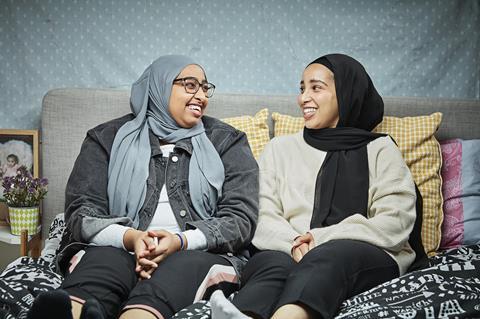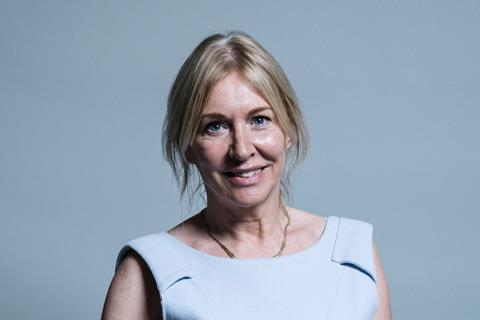Culture secretary’s first statements on C4 echo her predecessor’s message

Nadine Dorries has indicated that she is minded to press ahead with the DCMS proposals to sell Channel 4 in her first public utterance on the matter.
Appearing on a live edition of the Telegraph podcast Chopper’s Politics at the Conservative party conference in Manchester today (4 October), Dorries said that discussions are continuing regarding the future of the broadcaster.
“Channel 4 is in a good place at the moment, but if it wants to grow and be successful, then it needs to change. One of the one of the obvious ways of doing that is for C4 to be privatised,” she said.

Dorries was appointed to the brief last month when she replaced Oliver Dowden in a cabinet reshuffle that took place at the same time as he was expected to speak at the RTS Television conference. Dowden’s speech was duly delivered by culture minister John Whittingdale, who was then sacked the following morning.
C4 representatives are not thought to have met with DCMS officials since Dorries and her culture ministers Julia Lopez and Chris Philp took office. She has met with BBC director general Tim Davie and chair Richard Sharp however.
There had been some speculation than Dorries, who has previously attacked the BBC, was likely to be more focused on licence fee negotiations than becoming embroiled in C4 privatisation, with one Tory MP telling Broadcast that “a sale may be a battle too far”.
However, Dorries’ comments today appear to echo her predecessor’s position, set out as part of the consultation, that the government’s “preferred position” is for a change of ownership.
Elsewhere in the interview Dorries doubled down on her criticism of the BBC for being too posh and hinted that addressing the issue could form an important part of licence fee negotiations.
“It is the ‘British’ Broadcasting Corporation,” she said. “We are having a discussion about it can become more representative of the people who pay the licence fee and more accessible to people from all backgrounds and not just those people whose mum and dad work there and how it can become, once again, that beacon for everybody.”
































1 Readers' comment